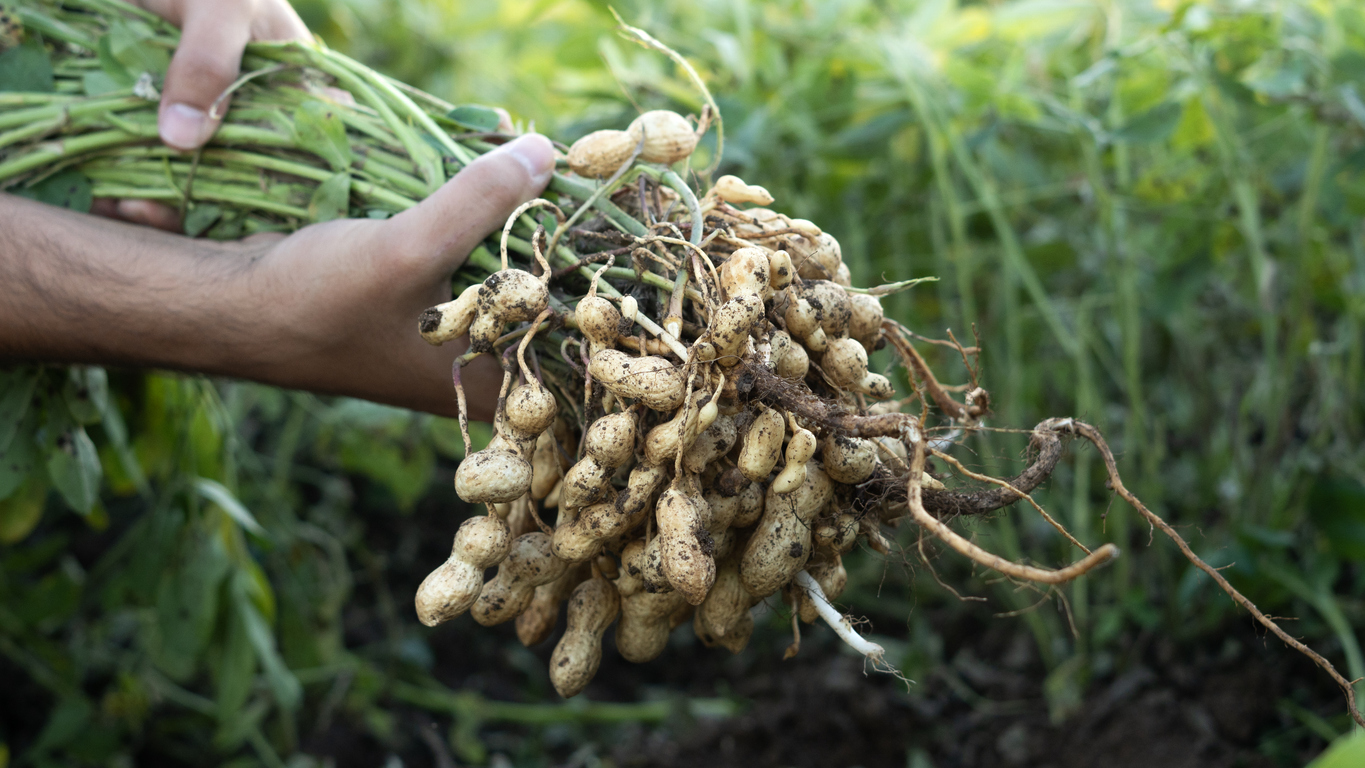
Pangenome Analysis Reveals Genetic Key to Larger Peanut Yields
April 30, 2025| |
An international research team from Australia and China has identified the crucial structural variations that determine seed size and weight in peanuts. This discovery will lead to the development of higher-yielding crop varieties.
Researchers from Murdoch University, Henan Agricultural University, Shanghai Jiao Tong University, and the Shandong Academy of Agricultural Sciences have assembled a pangenome of peanut that will serve as a fundamental resource for the genetic enhancement of legume crops. The results of the study, published in Nature Genetics, reveal the genome-wide diversity of 269 peanut accessions, including wild species, landraces, and improved species. The researchers found significant genomic variations and highlighted trait-related variations affecting seed size and weight, two of the most critical traits that affect peanut yield.
The study traced back the evolution of domesticated peanut varieties from their wild relatives, and discovered that the gene likely responsible for regulating cell division – and therefore yield size – was absent in all 61 wild species analyzed. In a groundbreaking first, the researchers also discovered that the gene Aharf2-2 negatively regulates seed size, and that the deletion of this gene leads to bigger peanut seeds.
Professor Rajeev Varshney, Director of the Centre for Crop and Food Innovation at Murdoch University and Corresponding Author of the study, said, “Despite the global importance of peanuts, our understanding of the molecular mechanisms and evolutionary factors that influence peanut pod size and weight has been very limited, until now. This study offers the most comprehensive genomic variation resource of peanuts to date and will be an invaluable tool for peanut breeding and crop breeding efforts going forward.”
For more details, read the news article in Murdoch University News.
| |
You might also like:
- Scientists Use CRISPR to Develop Fragrant Peanuts
- CRISPR Reduces Very Long Chain Fatty Acids in Peanuts
- Murdoch University Team Identifies Genes in Peanut with Potential for Improvement
Biotech Updates is a weekly newsletter of ISAAA, a not-for-profit organization. It is distributed for free to over 22,000 subscribers worldwide to inform them about the key developments in biosciences, especially in biotechnology. Your support will help us in our mission to feed the world with knowledge. You can help by donating as little as $10.
-
See more articles:
-
Plant
- Analysis Identifies Specific Genes Found in All Grasses
- Study Unravels Cause of Tomato Bacterial Spot's Global Spread
- Pangenome Analysis Reveals Genetic Key to Larger Peanut Yields
- Researchers Develop Transgene-free Edited Banana
- Field Trials of Bt Cowpea Reveal Effective Resistance to Pest in Ghana
- USDA-APHIS Designates Cibus' Disease Resistance Traits for Gene-Edited Canola as Not Regulated
- Transgenic Cowpea Confers Insect Resistance and Herbicide Tolerance
-
Environment
- New CRISPR Technique Reveals Hidden Microbial Diversity
-
Read the latest: - Biotech Updates (December 10, 2025)
- Gene Editing Supplement (December 17, 2025)
- Gene Drive Supplement (February 22, 2023)
-
Subscribe to BU: - Share
- Tweet

